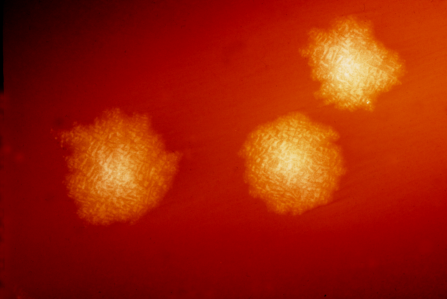Multiple strains of C. difficile cause severe patient outcomes

No single genetic strain of the widespread Clostridium difficile (C. difficile) bacteria appears to be any more harmful than other strains, according to new research published online today in Infection Control & Hospital Epidemiology, the journal of the Society for Healthcare Epidemiology of America.
The findings contradict previous research suggesting that the emergence of the most severe C. difficile infections (CDI) could be linked with a particular strain known as Ribotype 027 (R027). C. difficile is a highly infectious diarrhea that is the most common cause of healthcare-associated infections (HAI) in the United States.
"Clinical severity markers of CDI, such as white blood cell count and albumin level, a protein in blood, are more important predictors of severe outcomes than any specific strain, especially in hospitals with no single predominant strain," said Samuel L. Aitken, PharmD, lead author of the study.
This multicenter observational cohort study used data from more than 700 patients at seven hospitals in the Houston, TX area to assess disease severity at presentation and the clinical outcomes of patients with varying C. difficile strains. Researchers conducted epidemiologic strain typing of C. difficile to identify both the prevalence of different strains, as well as the impact of distinct strains on disease severity and patient outcomes.
Although C. difficile R027 was the most prevalent strain associated with severe onset of the disease, it was found to not be any more likely to cause severe outcomes than other C. difficile strains. However, researchers noted that continued use of non-C. difficile antibiotics was a strong predictor of severe CDI outcomes in all strains. The continued use of other antibiotics has previously been associated with prolonged diarrhea and CDI treatment failure.
Strain typing remains a valuable source of information for tracking emergence of different strains and may potentially influence treatment decisions, said Aitken, but clinical severity markers appear to be more important predictors for the determining the severity of CDI patient outcomes.
More information: Samuel L. Aitken, M. Jahangir Alam, Mohamed Khaleduzzuman, Seth T. Walk, William L. Musick, Vy P. Pham, Jennifer Christensen, Robert Atmar, Yang Xie, Kevin W. Garey. "In the Endemic Setting, Clostridium difficile Ribotype 027 Is Virulent But Not Hypervirulent." Web (August 20, 2015).
















